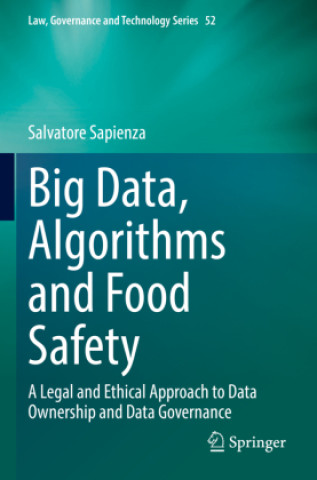
Code: 44314019
Big Data, Algorithms and Food Safety
by Salvatore Sapienza
This book identifies the principles that should be applied when processing Big Data in the context of food safety risk assessments. Food safety is a critical goal in the protection of individuals' right to health and the flourishi ... more
- Language:
 English
English - Binding: Paperback
- Number of pages: 216
Publisher: Springer, Berlin, 2023
- More about this

139.60 €

Low in stock at our supplier
Shipping in 12 - 17 days
Potřebujete více kusů?Máte-li zájem o více kusů, prověřte, prosím, nejprve dostupnost titulu na naši zákaznické podpoře.
Add to wishlist
You might also like
-

Alexander von Humboldt and the United States
97.71 € -5 % -

Movie Book
23.34 € -9 %
Give this book as a present today
- Order book and choose Gift Order.
- We will send you book gift voucher at once. You can give it out to anyone.
- Book will be send to donee, nothing more to care about.
More about Big Data, Algorithms and Food Safety
You get 345 loyalty points
 Book synopsis
Book synopsis
This book identifies the principles that should be applied when processing Big Data in the context of food safety risk assessments. Food safety is a critical goal in the protection of individuals' right to health and the flourishing of the food and feed market. Big Data is fostering new applications capable of enhancing the accuracy of food safety risk assessments. An extraordinary amount of information is analysed to detect the existence or predict the likelihood of future risks, also by means of machine learning algorithms. Big Data and novel analysis techniques are topics of growing interest for food safety agencies, including the European Food Safety Authority (EFSA). This wealth of information brings with it both opportunities and risks concerning the extraction of meaningful inferences from data. However, conflicting interests and tensions among the parties involved are hindering efforts to find shared methods for steering the processing of Big Data in a sound, transparent and trustworthy way. While consumers call for more transparency, food business operators tend to be reluctant to share informational assets. This has resulted in a considerable lack of trust in the EU food safety system. A recent legislative reform, supported by new legal cases, aims to restore confidence in the risk analysis system by reshaping the meaning of data ownership in this domain. While this regulatory approach is being established, breakthrough analytics techniques are encouraging thinking about the next steps in managing food safety data in the age of machine learning.The book focuses on two core topics - data ownership and data governance - by evaluating how the regulatory framework addresses the challenges raised by Big Data and its analysis in an applied, significant, and overlooked domain. To do so, it adopts an interdisciplinary approach that considers both the technological advances and the policy tools adopted in the European Union, while also assuming an ethical perspective when exploring potential solutions. The conclusion puts forward a proposal: an ethical blueprint for identifying the principles - Security, Accountability, Fairness, Explainability, Transparency and Privacy - to be observed when processing Big Data for food safety purposes, including by means of machine learning. Possible implementations are then discussed, also in connection with two recent legislative proposals, namely the Data Governance Act and the Artificial Intelligence Act.
 Book details
Book details
Book category Books in English Law Laws of Specific jurisdictions Entertainment & media law
139.60 €
- Full title: Big Data, Algorithms and Food Safety
- Subtitle: A Legal and Ethical Approach to Data Ownership and Data Governance
- Author: Salvatore Sapienza
- Language:
 English
English - Binding: Paperback
- Number of pages: 216
- EAN: 9783031093692
- ID: 44314019
- Publisher: Springer, Berlin
- Dimensions: 235 × 155 mm
- Date of publishing: 04. November 2023
Trending among others
-

VAST CONSPIRACY
19.25 € -6 % -

Video Game Law
85.72 € -

Little Book of Elvis Law
18.73 € -13 % -
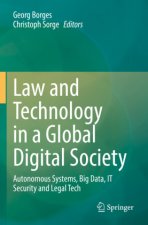
Law and Technology in a Global Digital Society
214.68 € -

Sports Law
108.15 € -

Sports Law
251.86 € -

Sports Law
66.47 € -

Media Freedom under the Human Rights Act
87.77 € -

Eu Personal Data Protection in Policy and Practice
91.15 € -
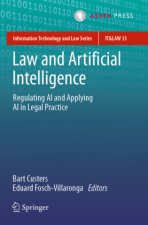
Law and Artificial Intelligence
127.10 € -
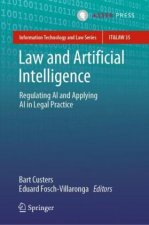
Law and Artificial Intelligence
127.10 € -

Handbook on International Sports Law
65.24 € -10 % -

Sports Betting: Law and Policy
277.26 € -

European Sports Law
314.75 € -

Toward a Conceptual Network for the Private Law of Artificial Intelligence
227.18 € -

EU Internet Law in the Digital Single Market
314.75 € -
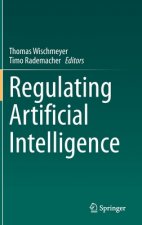
Regulating Artificial Intelligence
202.18 € -

Introduction to Sport Law With Case Studies in Sport Law
169.10 € -

Multidisciplinary Perspectives on Artificial Intelligence and the Law
64.62 € -

EU Policy and Legal Framework for Artificial Intelligence, Robotics and Related Technologies - The AI Act
139.60 € -

Football, Gambling, and Money Laundering
32.77 € -4 % -

Introduction to International and European Sports Law
227.18 € -

Film and the Law
132.02 € -

Your Post Has Been Removed
56.74 € -

Reality Television Contracts
20.17 € -6 % -

More Safety and Security at Sports Grounds
42.70 € -

EU Sports Law and Breakaway Leagues in Football
252.27 € -

Doping in Sport and the Law
85.42 € -

Design Evolution and The Law
202.18 € -

Essays on the Visualisation of Legal Informatics
227.18 € -

Match-Fixing in International Sports
152.20 € -

Promotional Marketing Law
163.16 € -

Media Law and Ethics
81.63 € -

Public Service Broadcasting 3.0
217.86 € -

Law for Journalists
69.85 € -

Baseball Meets the Law
56.74 € -

Pregnant with the Stars
157.01 € -

Regulating Content on Social Media
42.60 € -

Entertainment Law in a Nutshell
105.39 € -

Cyber Security and Data Laws of the Commonwealth
227.18 € -

Legal and Ethical Challenges of Artificial Intelligence from an International Law Perspective
139.60 € -
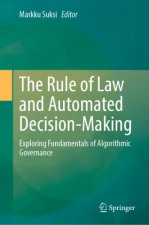
The Rule of Law and Automated Decision-Making
214.68 € -
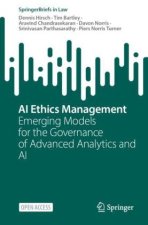
Data Ethics Management
49.57 € -

Standard-Setting Organisations' IPR Policies
202.18 € -

Ruled by Recluses? Privacy, Journalism and the Media after the Human Rights Act
13.82 € -4 % -

Little Book of Skiing Law
18.73 € -13 % -

Digital Media Law 2e
122.60 € -

Representing the Professional Athlete
91.87 € -

Linked Democracy
62.57 €
Collection points Bratislava a 2642 dalších
Copyright ©2008-24 najlacnejsie-knihy.sk All rights reservedPrivacyCookies


 15549 collection points
15549 collection points Delivery 2.99 €
Delivery 2.99 € 02/210 210 99 (8-15.30h)
02/210 210 99 (8-15.30h)